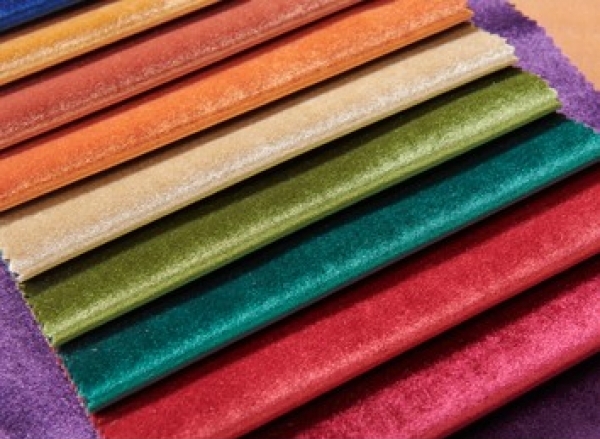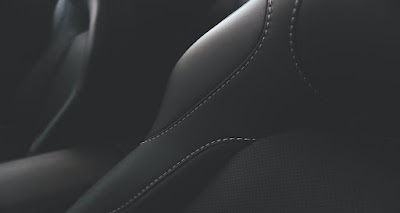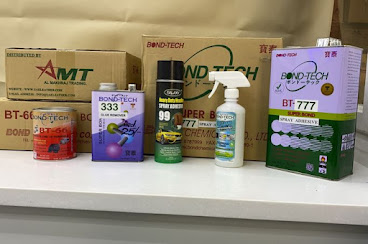When it comes to home furnishings and furniture, suede and velvet each have their own distinct softness that people adore. Velvet is a woven tufted fabric with a short dense pile made up of cut threads that are evenly dispersed. This is what gives it its "velvety soft" feel. Suede, on the other hand, is a leather that is created from the underside of an animal's skin.
Suede and velvet is a type of fabric that is used in garments, upholstery, purses, handicrafts, shoe linings, and jackets, among other things.
Best suede and velvet fabric supplier has a large selection of attractive fabrics that you'll enjoy for your upholstery and other projects.
Suede
Suede is a sort of leather that may be made
from any species of animal skin that is used to make regular leather. The
fundamental distinction between suede and other varieties of leather is that
suede fabric is made from the underside of an animal's skin, while other types
of leather are made from the top side.
Animal skin is considerably softer on the
inside than it is on the exterior, and it is also least immune to the
environment and stains. As a result, suede is often regarded as a high-end
material; although it loses the durability of traditional leather, it is much
smoother to the feel and more pleasant on the skin.
Uses of Suede
Suede fabric may be used in a wide range of
garment and accessory uses. This cloth isn't suitable for industrial usage due
to its delicate nature.
Suede is a renowned fabric for shoe
manufacture, since Elvis Presley's interpretation of "Blue Suede
Shoes" is forever engraved in our cultural memory. While suede is
naturally light brown or grey, several dyeing procedures may be employed to
change the colour scheme of this fabric to turn it blue, red, yellow, green, or
any other colour desired.
Suede is a kind of fabric that is exclusively
suitable for formal shoes. This fabric is not suitable for outdoor shoe applications
since it is sensitive, absorbs water, and is stain-prone. In reality, constant
care is required to keep suede shoes looking respectable, prompting many fans
of the fabric to choose for synthetic alternatives, which don't need as much
upkeep and are machine washable.
Characteristics of Suede
Suede has a fuzzy, "napped" finish.
Suede seems more like cotton or another sort of plant-based fiber than animal
skin, even though most varieties of leather are smooth. Suede is matte in
appearance, while regular leather is shiny, and whereas normal leather is
resistant, suede is porous and stain-prone.
Suede is often thinner than conventional
leather, which adds to its appeal for fragile textile applications. Suede is
famously difficult to clean; machine washing may harm it, but since suede gets
filthy so quickly, owners of suede clothes, shoes, or items must have their
suede goods professionally cleaned on a regular basis to maintain them in
excellent shape.
How is Suede Manufactured?
The killing of the calf which will be used to
produce suede starts with the slaughter of the animal. The hide is then dried
once the animal has been skinned.
After the hide has cured completely, a natural
chemical known as lime is utilized to eliminate all of the hair follicles. The
hide is next subjected to tannins, which make it inert and turn it into
leather.
Without tannins, leather skin would
disintegrate over time like every animal product. Tannins stop this
degradation, and tanning is the act of applying them.
Velvet
Velvet is a smooth, silky fabric often used in
intimate apparel, furniture, and other fabric applications. Velvet is generally
connected with the nobility because to how costly it was to create velvet
fabrics in the past.
Uses of Velvet
Velvet's key selling point is its softness,
hence it's generally employed in situations where the fabric will be in close
proximity to the skin. Velvet, on the other hand, has a particular aesthetic
attraction, thus it's often used in home design, such as drapes and toss
cushions. Velvet is frequently used in beds because of its softness. Insulative
blankets, which are put between sheets and duvets, are usually made of this
fabric. Velvet is much more common in women's clothes than in men's, and it's
often utilised to emphasise womanly curves and produce magnificent eveningwear.
Velvet is often used in glove linings and certain stiff kinds of velvet are
utilised to build hats.
Characteristics of Velvet
Velvet manufacture became considerably more
affordable with the invention of machine looms, and the production of synthetic
materials that resemble the qualities of silk eventually brought velvet even to
the poorest members of society. While today's velvet may not have been as pure
or unique as previous velvets, it is nevertheless regarded as a fabric for
draperies, comforters, soft toys, and a variety of other soft and cuddly items.
How is Velvet Manufactured?
While velvet may be made from a variety of
fabrics, the procedure for making it is the same irrespective of which base
cloth is used. Velvet is only made on a special weaver that rotates two layers
of cloth at the same time. After that, the fabric layers are separated and
wrapped up on rolls. Velvet is manufactured using vertical yarn, whereas velveteen
is produced with horizontal yarn, although both are made using substantially
the same procedures but Velveteen, is often blended with regular Cotton yarn's
quality degrading , and its texture is
altered.
Silk is manufactured by unwinding silkworm
cocoons and spinning the strands into yarn. It is one of the most famous velvet
materials. Petrochemicals are converted into filaments to make synthetic
fabrics like rayon. Depending on the desired purpose, one of these fiber types
may be coloured or treated after being woven into velvet material.
Summing up
Suede and Velvet are one of the most used
fabrics of all time. They are frequently used in automobiles, sofas, etc. If
you are looking for Suede and Velvet, Al-Makhraj Trading is the right choice
for you, as it offers quality products at reasonable price. With varieties of
velvet and Suede available at Al-Makhraj Trading, you can pick one according to
your choice.



Comments
Post a Comment